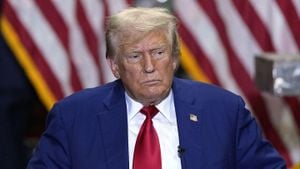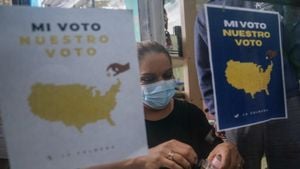The digital marketplace has become fraught with perils, especially with the prevalence of counterfeit goods and the recent efforts to tackle cybercrime on platforms like PopeyeTools.
The United States Department of Justice (DoJ) has made significant strides against this threat by seizing the notorious cybercrime marketplace, PopeyeTools. This site had been operational since at least 2016, acting as a hub for cybercriminals to trade stolen credit card information, hacking tools, and various other illicit goods. The authorities announced their actions included not just shutting down the platform, but also charging three of its administrators. These individuals, identified as Abdul Ghaffar, Abdul Sami, and Javed Mirza, all of whom hail from Pakistan and Afghanistan, face serious charges related to access device fraud. Each could potentially serve up to ten years behind bars.
This operation, dubbed Operation Shipwrecked, reflects the DoJ's commitment to combating cybercrime through comprehensive measures. According to their press release, the investigation, spearheaded by the FBI, involved taking control of the PopeyeTools domain itself. They also managed to secure judicial authorization to seize $283,000 worth of cryptocurrency from one of the suspects.
PopeyeTools wasn’t just any run-of-the-mill site; it was known for its motto, “We Believe in Quality Not Quantity.” It successfully marketed itself based on the supposedly genuine nature of its offerings, which included validated stolen credit cards and accompanying services. Each set of illicit card data was valued at around $30, rendering it accessible to various criminal interests. The platform even featured sections labelled as Live Fullz which sold unauthorized payment card data and personal identifiable information (PII). Available offers included everything from fresh bank logs to extensive guides on conducting fraud, underscoring its complexity and popularity.
According to documents from the Justice Department, over 227,000 individuals reportedly purchased stolen data through this marketplace, contributing to over $1.7 million in revenue generated by the illicit activity. Feedback systems allowed buyers to confirm the authenticity of stolen data prior to purchase, ensuring PopeyeTools maintained the level of trust needed to operate within the shadowy world of cybercrime.
Meanwhile, the rise of counterfeit goods presents another layer of complexity amid these cybercriminal activities. An alarming study conducted by researchers from Michigan State University pointed out the troubling statistic: 70% of consumers unknowingly purchased counterfeit products online within the last year. This figure escalates concerns about the lack of regulation and oversight present on popular online marketplaces. Despite significant increases in e-commerce sales, the proliferation of counterfeit goods seems to overwhelm these platforms. An investigation by the Wall Street Journal even highlighted Amazon as posing somewhat of a risk, labeling it as "a flea market" where unsafe and mislabeled goods often slip through the cracks.
Counterfeit seizures have also seen fluctuative trends, with the Customs and Border Protection agency reporting their counterfeits seizures peaked at $3.33 billion during the COVID-19 pandemic, later dropping to $2.76 billion by 2023. Yet, this figure still marked over double the value reported just three years prior. Counterfeit goods predominantly originate from countries such as China, Hong Kong, and India. High-risk categories consistently surface, including luxury items like handbags, jewelry, and apparel—products considered culturally significant yet often faked.
Many e-commerce platforms, such as Amazon, have been challenged on accountability grounds. Comments by Ramesh Srinivasan, professor of information studies at UCLA, have brought attention to the issue, asserting, "Big platforms should be responsible if they monetize counterfeit sales." New legislation, such as the bipartisan SHOP SAFE Act, is making headway—this act aims to hold platforms accountable for the counterfeit items listed on their sites, potentially accompanying litigation from consumer purchases. This act advocates for improved practices around trademark infringement and implementing stricter monitoring systems.
Total responsibility does not solely rest on sellers, as consumers are also encouraged to educate themselves on online purchasing precautions. The government's recommendations include ensuring sites encrypt their payment processes (look for HTTPS), verifying seller legitimacy through brand websites, and familiarizing oneself with the visual discrepancies often found between counterfeit and authentic products.
With both counterfeit goods and cybercrime presenting intertwined threats, it’s clear—staying aware and making informed purchases is more important than ever. The recent actions by the DoJ signal our government’s dedication to battling these preserving economic integrity and consumer safety.



